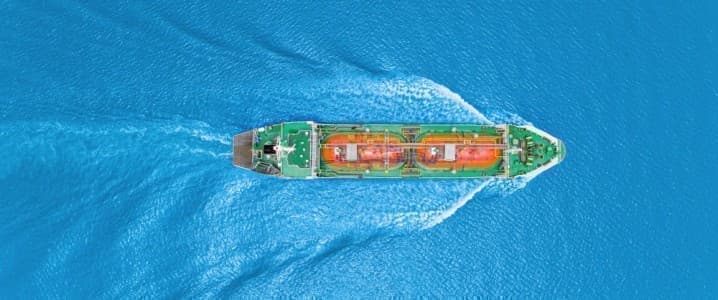The maritime industry is one of the main targets of decarbonization planners. As such, it has also been the target of targeted efforts to reduce its fuel consumption – and the resulting emissions. However, in recent times this has become more difficult due to other actions by these same planners who want cleaner shipping.
Ships, which account for up to 90% of global trade, consume enormous amounts of fuel, and most of that fuel is derived from hydrocarbons. The International Maritime Organization, under pressure from transition-oriented governments, recently approved rules that reduce the sulfur content of marine fuels, but this was not deemed sufficient by those same governments and their NGO advisers.
At the same time, some of these concerned governments are making decisions that unintentionally result in higher emissions levels and an increased risk of fuel spills. For example, the Red Sea crisis diverted most traffic from the Suez Canal to the Cape of Good Hope. The diversion around Africa adds 4,000 miles to the average ship’s journey between Europe and Asia. This also means much greater fuel consumption.
Perhaps it would be possible to argue here that the consequences of Houthi attacks on ships in the Red Sea are not the result of deliberate actions by governments in Europe and the United States. However, it could also be argued that these governments could have made more diplomatic efforts to end the war between Israel and Hamas.
However, while the situation of the Red Sea crisis is open to interpretation, the sanctions against Iran, Venezuela and Russia are not. Pointed punitive actions from Washington and Brussels have forced oil exporters in all three countries to use tankers with no connection to a Western commercial entity – and therefore resort to substandard fuels.
Reuters recently reported, citing Lloyd’s List Intelligence, that the so-called black fleet carrying Iranian, Venezuelan and Russian oil has grown from 530 tankers a year ago to around 630 tankers today. These 630 tankers represent 14.5% of the world’s tanker fleet, and some of them are, according to experts, a disaster waiting to happen.
Tankers carrying oil under sanctions, a Lloyd’s List Intelligence analyst told Reuters, are using the cheapest fuel possible, and it is also the dirtiest fuel. After all, they are a hidden fleet, which suggests a certain disregard for rules that are not in the interests of their operators. Ports, however, have the power to enforce these rules, and as a result, ship detentions for using high-sulfur fuel have increased in Europe.
This would suggest that there is still a way to impose cleaner fuels on those parts of the maritime industry who feel they are not bound by the new rules, however, high sulfur fuel is not not the only problem with the clandestine fleet. The risk of spills during ship-to-ship transfers on the open sea is also significant. It is also a direct effect of sanctions aimed at stifling the oil industries of targeted countries.
There’s more. Even for shipping companies that do not deal with sanctioned oil, the IMO’s ambition for cleaner shipping is a challenge. Because there does not appear to be a long-term regulatory framework that would incentivize ship owners to switch to cleaner fuels.
Methanol, ammonia and LNG have been touted as alternatives to petroleum-derived fuels, but their use requires retrofitting existing ships with new fuel delivery systems or building entirely new ships running on them. one of these fuels. The problem is that none of these fuels are produced at the scale needed, and none have proven their value over a longer period of time. As a result, ships continue to burn “dirty” fuels to maintain global trade. This is unlikely to change anytime soon unless all sanctions are lifted, which is highly unlikely.




